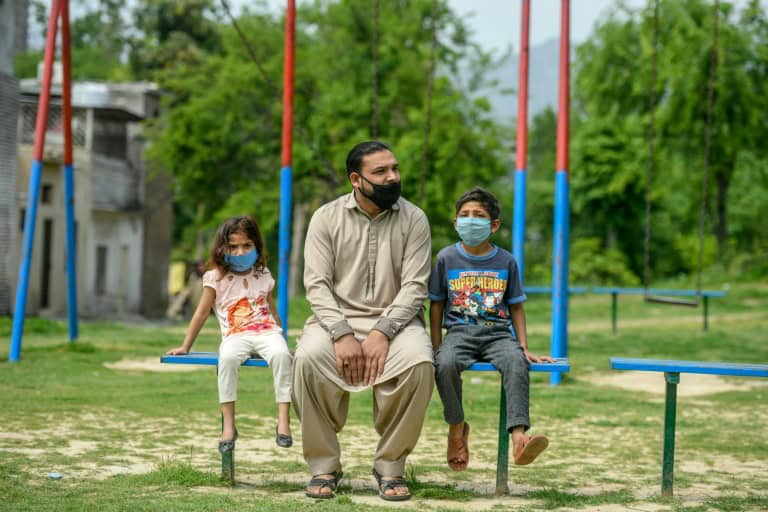“In general, the elderly are marginalized even though traditionally humans are taught to respect and take care of the older generation, the innate fear of ‘aging’, ‘losing vitality’ and death have made ‘ageism’ a prevalent ‘social evil’. Such stigma and abuse can flare up during an outbreak which has an age-specific vulnerability.”
The statement gives a brief insight into a recent analysis by Dr. Debanjan Banerjee who is a geriatric psychiatrist at the National Institute of Mental Health and Neurological Sciences, Bengaluru. He is of the view that the decision of a sudden worldwide lockdown was necessary but no one was sufficiently prepared, least so the elderly. Dr. Banerjee further refers to the advanced medical research to show that the elderly people (above 55 years) have more chances to get infected with coronavirus that also increases the probability of their comparatively a longer duration of hospital stay, high lung infection rate, late clinical recovery, weakness of the immune system and lastly irreversible health complications. In fact, his research findings warn us to take great care of our senior family members in order to help them go through this phase in a smooth way.
Therefore, amidst this pathogen, we need to support our elderly group in every possible way to make them fight against this fearful state. As a matter of fact, all age group people including kids are getting panic in the current situation; however, chances are high that the senior members of our families are at a greater risk. Appropriate behavior should be demonstrated during this already precarious situation; rather, we should use this opportunity to lay down the foundations for a stronger social and familial protection system for our parents and other senior members of society. The elderly are prone to flue type symptoms that can be confused with coronavirus, therefore, other family members are supposed to deal with the situation calmly.
Other than physical vulnerability, the old age people suffer from different mental problems, such as Alzheimer’s and Dementia, etc. which can prove irritating for the whole of the family. Thomas Kitwood, a British psychologist, identifies various psychological and social factors that must be taken care of in order to maintain the well-being of such elderly people—among them attachment, comfort, sense of inclusion, identity, and self-respect are very important. We can engage them in pleasurable tasks, such as gardening or taking care of pets so in thinking about spending time in lockdown the older people should not feel worthless. Moreover, in order for them to stay connected with their age group, we can arrange their online chats and virtual meetings with other family members or friends.
Although coronavirus has become the buzz word in the world today we should keep in mind the other risks that the old age people may have. For example, aging family members living with chronic conditions need extreme formal and informal care systems related to their physical and psycho-social life, as well as the environment in which they live and interact. Their medication, adequate diet, mental ease, and physical support should be kept at the priority even in this serious time of restrictions. They may feel extreme loneliness and nostalgia even sitting in the company of their children and grandchildren, but such behavioral problems are to be dealt with politely and patiently. Though a strict version of lockdown is over, but yet it is better to avoid hospital set-ups especially when it is concerned with the health of senior people. In that case, teleconsultation from expert mental health professional or a physician is a better option in order to avoid any risk. Moreover, sensory problems like vision or hearing difficulties, loss of memory, and some behavioral problems can pose a serious challenge to the entire family at times of such a restrictive outbreak.
Similarly, it is necessary to keep the elderly group updated regarding the safety measures to curb the pandemic spread. Additional supervision to keep their hands washed would be a great help. Psycho-social issues, especially during quarantine, can lead to depression, sleep problems, and the feeling of deep grief. Unfortunately, the old age group is also at an increased risk to develop post-traumatic stress disorder after the virus phase is over from the world.
From a religious perspective, we find that Islam also teaches the lesson of getting kind to our parents as Prophet (peace be upon him) said, “He is not of us who does not have mercy on young children, nor honor the elderly” (Al-Tirmidhi). This worthy saying can be taken as a guide to becoming age-friendly towards our elderly to preserve and protect their dignity and self-respect. In fact, they can transfer the words of wisdom to us in light of their life experiences and we can borrow their strong points. They might be physically weak but they are in fact strong foundations of our families and society. At the same time, there are some elderly people living in old homes or on streets (in case of beggars) who lack basic necessities such as food, clean drinking water, and medical health care.
They can be helped out in the form of emotional support or charity that will help them survive this challenging time with ease. We hope that everyone will move forward and focus on actions to adopt an inclusive approach in dealing with our beloved parents and senior family members during this tragedy. In this way, we will not only build a strong care system rather we will emerge stronger against the coronavirus pandemic battle. The importance of staying connected can be realized in light of Henry Ford’s statement, “Coming together is a beginning. Keeping together is progress. Working together is a success.”
The author has done her PhD in English Literature from NUML Islamabad. Currently, she is serving at the University of Lahore as a faculty member in the English department.














